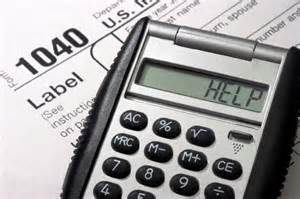If you were not able to file a tax return or an extension by the April 15th deadline, but should have, you need to take action now to avoid compiling penalties and interest. Here are some tips for taxpayers who missed the tax filing deadline:
 File as soon as you can. If you owe taxes, you should file and pay as soon as you can. This will stop the accrual of penalties and interest on the balance of tax that you owe. If your tax filing is more complicated (which is often the cause of taxpayer delays), contact us right away to set up your appointment to review your options and make certain your tax returns, both federal and state, are filed.
File as soon as you can. If you owe taxes, you should file and pay as soon as you can. This will stop the accrual of penalties and interest on the balance of tax that you owe. If your tax filing is more complicated (which is often the cause of taxpayer delays), contact us right away to set up your appointment to review your options and make certain your tax returns, both federal and state, are filed.
Pay as much as you can as soon as you can. Sometimes taxpayers delay filing their tax returns because they are not able to pay what they owe or they simply are nervous about what amount they may owe. Don’t let this slow you down. It’s better to know than to guess and worry over facts that may turn out to be untrue.
If you owe tax but can’t pay it in full, you should pay as much as you can when you file your tax return and then work out a way to pay the rest of the amount that is due over time. Check out our blog about options for paying taxes by clicking here.
For example, if you need more time to pay the federal tax you owe and don’t want to use a credit card or a bank loan, you may apply for an installment agreement through the IRS’ Electronic Federal Tax Payment System or EFTPS. This system allows you to set up a direct debit agreement. You don’t need to write and mail a check each month with a direct debit plan as it will automatically deduct the amount specified each month. You may also go online to your account at any time and make extra payments to help pay down the debt.
If you’re not comfortable using the online tool, fill out Form 9465, Installment Agreement Request, to apply. You can find the form and other documents you may need on IRS.gov/forms at any time.
Also online, IRS Direct Pay offers you a free, secure and easy way to pay your tax directly from your checking or savings account. If you are due a refund, there is no penalty for filing a late return. You may receive the refund directly into your checking or savings account. The sooner you file, the sooner you’ll receive that refund.
And that leads to an interesting tip: A refund may indeed be waiting. If you are due a refund, you should file as soon as possible to receive it. Even if you are not required to file, you may still receive a refund. This could apply if you had taxes withheld from your wages or you qualify for certain tax credits. You must file a return to claim tax credits. If you do not file your return within three years, you could lose your right to the refund.
Contact us for more information–remember, if you haven’t yet filed your taxes, better late than never. Give us a call.
 is now
is now 
